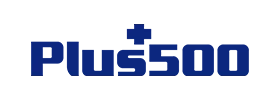Denmark, a country known for its strong economy and high standard of living, has a significant number of individuals interested in Forex trading. The Danish Forex market is regulated and supervised by the Danish Financial Supervisory Authority (Finanstilsynet), which ensures that all Forex brokers operating in the country comply with the relevant laws and regulations.
Below you can find a list with the best Forex brokers regulated in Denmark:
Top 10 Forex Brokers in Denmark
-
Fusion Markets
- Australia regulated broker
- MT4, MT5, TradingView, Ctrader
- Leverage up to 500
Trading InstrumentsDeposit Methods- Commodities CFDs
- Crypto CFDs
- Forex CFDs
- Indices CFDs
- Metals CFDs
- Stock CFDs
-
Plus500
- Multi-Level Regulated Broker
- Proprietary trading platforms
- Easy to use mobile app
Trading InstrumentsDeposit Methods- Commodities CFDs
- Crypto CFDs
- Energy CFDs
- ETF CFDs
- Forex CFDs
- Indices CFDs
- Metals CFDs
- Share CFDs
- Stock CFDs
- US Stock CFDs
-
ActivTrades
- Winner of 20+ Global Awards
- MT4/MT5, TradingView
- Leverage up to 1:400
Trading InstrumentsDeposit Methods- Bonds CFDs
- Commodities CFDs
- Crypto CFDs
- ETF CFDs
- Forex CFDs
- Indices CFDs
- Share CFDs
-
FP Markets
- Australia and CySEC regulated broker
- MT4/MT5, TradingView, Ctrader, Iress
- EUR/USD spread from 0.0 pips
Trading InstrumentsDeposit Methods- Commodities CFDs
- Crypto CFDs
- Energy CFDs
- Forex CFDs
- Indices CFDs
- Metals CFDs
- Stock CFDs
-
Axi
- Raw spreads start from 0.0 pips
- Offers order execution faster than standard ECN model
- Axi Select Funded Trader Program offers funding up to $1 million
Trading InstrumentsDeposit Methods- Commodities CFDs
- Crypto CFDs
- Forex CFDs
- Indices CFDs
- Metals CFDs
- Stock CFDs
-
FXTM
- Established brokerage company regulated by UK FCA, Kenya CMA, and Mauritius FSC
- MT4, MT5, Mobile Trading Platform
- $1M Lloyd’s of London account insurance
Trading InstrumentsDeposit Methods- Commodities CFDs
- Crypto CFDs
- Forex CFDs
- Indices CFDs
- Metals CFDs
- Stock CFDs
-
Pepperstone
- Australia and CySEC regulated broker
- MT4/MT5, TradingView, Ctrader, Iress
- EUR/USD spread from 0.0 pips
Trading InstrumentsDeposit Methods- Commodities CFDs
- Crypto CFDs
- Energy CFDs
- Forex CFDs
- Indices CFDs
- Metals CFDs
- Stock CFDs
-
eToro
- Popular broker for social trading
- Trading is conducted on innovative in-house platform
- Offers both investing and trading products
Trading InstrumentsDeposit Methods- Commodities CFDs
- Crypto CFDs
- ETF CFDs
- Forex CFDs
- Indices CFDs
- Metals CFDs
- Share CFDs
- Stock CFDs
- US Stock CFDs
-
BlackBull Markets
- Broker boasting lightning-fast execution speed
- ECN brokers with tight spreads from 0.0 pips
- $0 minimum deposit requirement
Trading InstrumentsDeposit Methods- Commodities CFDs
- Crypto CFDs
- Forex CFDs
- Indices CFDs
- Metals CFDs
- Stock CFDs
-
Interactive Brokers
- Providing access to more than 135 global markets: Forex, Cryptocurrencies, Bonds, Commodities and Stocks
- Seamless integration with third-party research platforms and API access for automated trading and portfolio management.
- Advanced trading tools, such as algorithmic trading options, which allow professional-level trading executions.
Trading InstrumentsDeposit Methods- Bond Futures
- Bonds CFDs
- Commodities CFDs
- Crypto CFDs
- ETF CFDs
- Forex CFDs
- Indices CFDs
- Metals CFDs
- Mutual Funds
- Share CFDs
- Stock Options
Brokers Compared by Spread
| Brand | Commission per lot | |
|---|---|---|
| Fusion Markets | AVG 0.93 pips | $0 Classic Account, $4.50 round turn on Zero Account |
| Plus500 | AVG 1.4 pips | $0 |
| ActivTrades | AVG 0.5 pips | $0 |
| FP Markets | AVG 1.2 pips | $0 Standard Account; $6 round turn on Pro Account |
| Axi | AVG 1.2 pips | $0 on Standard Account; $7 round trip on Pro Account |
| FXTM | AVG 2.1 pips | $4 per lot |
| Pepperstone | AVG 1.1 pips | $0 (Standard Account), $7 round-turn (Razor Account, TradingView, MT4, MT5), $6 round-turn (Razor Account, cTrader) |
| eToro | AVG 1 pips | $1 or $2 (stocks only) |
| BlackBull Markets | AVG 1 pips | $0 (ECN Standard Account), $6 round turn (ECN Prime Account), $4 round turn (ECN Institutional Account) |
| Interactive Brokers | AVG 0.2 pips | From 0.08 to 0.20 bps x trade size |
FX Brokers Deposit Method Comparison
| Brand | Minimum deposit | |
|---|---|---|
| Fusion Markets | $0 | |
| Plus500 | $100 | |
| ActivTrades | $0 | |
| FP Markets | $50 (AU$100) | |
| Axi | $0 | |
| FXTM | $200 | |
| Pepperstone | $0 | |
| eToro | $50 or $100 based on country ($10 for the UK) | |
| BlackBull Markets | $0 (Standard)$2,000 (Prime)$20,000 (Institutional) | |
| Interactive Brokers | $0 |
Brokers by Regulator
| Brand | Maximum leverage | |
|---|---|---|
| Fusion Markets | 1:500 (ASIC | Pro Account), 1:30 (ASIC | Retail Account), 1:500 (VFSC | Retail Account) | |
| Plus500 | 1:300 (Pro Account), 1:30 (ASIC | Retail Account), 1:30 (BaFin | Retail Account), 1:30 (CySEC | Retail Account), 1:30 (FCA | Retail Account), 1:30 (FMA | Retail Account), 1:30 (SFSA | Retail Account), 1:30 (DFSA), 1:300 (FSAS), 1:20 (MAS), 1:300 (SCB) | |
| ActivTrades | 1:400 (CMVM | Pro Account), 1:30 (CMVM | Retail Account), 1:1000 (FSC), 1:200 (SCB) | |
| FP Markets | 1:500 (CySEC | Pro Account), 1:30 (ASIC | Retail Account), 1:30 (CySEC | Retail Account), 1:500 (FSAS | Retail Account) | |
| Axi | 1:500 (Elite Account), 1:400 (Pro Account), 1:30 (ASIC | Retail Account), 1:30 (CySEC | Retail Account), 1:30 (DFSA | Retail Account), 1:30 (FCA | Retail Account), 1:500 (SVGFSA) | |
| FXTM | 1:30 (FCA | Retail Account), 1:400 (CMA), 1:3000 (FSCA) | |
| Pepperstone | 1:500 (CySEC | Pro Account), 1:500 (SCB | Pro Account), 1:30 (ASIC | Retail Account), 1:30 (CySEC | Retail Account), 1:30 (DFSA | Retail Account), 1:30 (FCA | Retail Account), 1:200 (SCB | Retail Account) | |
| eToro | 1:400 (CySEC | Pro Account), 1:30 (CySEC | Retail Account), 1:400 (FSAS | Retail Account) | |
| BlackBull Markets | 1:500 (FMA), 1:500 (FSAS) | |
| Interactive Brokers | 1:30 (ASIC | IBKR Lite), 1:30 (CBI | IBKR Lite), 1:30 (FCA | IBKR Lite), 1:25 (JFSA | IBKR Lite), 1:20 (MAS | IBKR Lite), 1:500 (Pro Account) |
Forex Brokers Platform Availability
| Brand | FX pairs to trade | |
|---|---|---|
| Fusion Markets | cTrader, MetaTrader 4, MetaTrader 5, TradingView | |
| Plus500 | Proprietary Mobile, Proprietary Web | |
| ActivTrades | MetaTrader 4, MetaTrader 5, Proprietary Web, TradingView | |
| FP Markets | cTrader, TradingView | |
| Axi | MetaTrader 4 | |
| FXTM | MetaTrader 4, MetaTrader 5 | |
| Pepperstone | MetaTrader 4, MetaTrader 5, Proprietary Mobile, Proprietary Web | |
| eToro | Proprietary | |
| BlackBull Markets | cTrader, MetaTrader 4, MetaTrader 5, TradingView | |
| Interactive Brokers | Proprietary Mobile, Proprietary Web |
Comprehensive Comparison of the Best Denmark Forex Brokers
In this article, we will provide an overview of the Forex market in Denmark, including the legal forms of Forex trading, restrictions on currency trading, regulatory bodies, requirements for Forex brokers, and how to identify reliable Forex brokers accepting Danish clients. We will also discuss taxes on profits from Forex trading in Denmark.
Legal Forms of Forex Trading in Denmark
The Danish Forex market offers a wide range of trading opportunities, including spot trading, CFDs, and futures. Danish traders can trade with various currency pairs, including the Danish krone (DKK), euro (EUR), US dollar (USD), and other major currencies. However, it is essential to understand the regulatory framework and requirements for Forex brokers operating in Denmark to ensure a safe and secure trading experience.
In Denmark, various forms of Forex trading are allowed, including spot trading, CFDs (Contracts for Difference), spread betting on currency pairs, futures, options, and forwards. Spot trading involves buying or selling a currency pair at the current market price, with the transaction typically settling within two business days. CFDs, on the other hand, are derivative instruments that offer the option to speculate on the price fluctuations of a currency pair without actually owning the underlying asset.
Futures and options are also available in the Danish Forex market, allowing traders to buy or sell a currency pair at a predetermined price on a specific date in the future. Forwards, which are similar to futures, are also allowed in Denmark, but they are typically traded over-the-counter (OTC) rather than on an exchange. Additionally, Danish traders can also trade currency pairs with leverage, which can amplify both gains and losses. However, it is essential to note that leverage can be risky and should be used with caution.
The Danish Financial Supervisory Authority (Finanstilsynet) regulates all forms of Forex trading in Denmark, ensuring that Forex brokers comply with the relevant laws and regulations. The authority also provides guidance and information to traders on the risks associated with Forex trading and the importance of choosing a reliable and regulated Forex broker.
Restrictions on Currency Trading in Denmark
While Denmark allows various forms of Forex trading, there are some restrictions on currency trading in the country. For example, binary options are prohibited in Denmark, as they are considered a high-risk and speculative investment product. Additionally, some Forex brokers may not offer certain trading instruments, such as spread betting, to Danish traders due to regulatory restrictions.
The Danish Financial Supervisory Authority (Finanstilsynet) has also imposed restrictions on the marketing and sale of Forex trading products to retail clients, particularly those with high leverage or complex features. Forex brokers operating in Denmark must comply with these restrictions and ensure that their trading products are suitable for retail clients.
Furthermore, Danish traders are not allowed to trade with Forex brokers that are not regulated by the Danish Financial Supervisory Authority (Finanstilsynet) or another European regulatory authority, such as the Cyprus Securities and Exchange Commission (CySEC) or any other tier-1 EU regulator. This ensures that Danish traders are protected from unregulated and potentially fraudulent Forex brokers.
Who Regulates Forex Trading in Denmark?
The Danish Financial Supervisory Authority (FSA) is the primary regulatory body responsible for overseeing the Forex market in Denmark. The authority is responsible for licensing and supervising Forex brokers operating in the country, as well as ensuring that they comply with the relevant laws and regulations.
The FSA is also following guidelines imposed by the European Securities and Markets Authority (ESMA), which provides guidance and coordination on regulatory matters across the European Union. This ensures that Danish traders are protected by a robust regulatory framework that is consistent with European standards.
The regulatory framework in Denmark is designed to protect traders and ensure that Forex brokers operate in a fair and transparent manner. By regulating the Forex market, the Danish authorities can prevent fraudulent activities, ensure that traders are treated fairly, and maintain the stability of the financial system.
Requirements for Forex Brokers in Denmark
Forex brokers operating in Denmark must comply with a range of requirements to ensure the protection of traders and the integrity of the financial system. One key requirement is negative balance protection, which prevents traders from losing more than their initial deposit. This means that if a trader’s account balance falls below zero, the broker must automatically close the position and limit the loss to the initial deposit.
Another important requirement is leverage limits, which restrict the amount of leverage that brokers can offer to traders. In Denmark, the maximum leverage limit is 1:30 for major currency pairs and 1:20 for minor currency pairs. This helps to reduce the risk of traders taking on excessive leverage and losing large amounts of money.
Leverage limits in forex pairs apply only to retail Danish traders, with professional traders having the opportunity to surpass these restrictions and use higher leverage ratios.
Additionally, Forex brokers in Denmark must also provide investor compensation, which protects traders in the event that the broker becomes insolvent. This compensation is typically provided by the Danish Guarantee Fund for Depositors and Investors, which covers deposits up to a certain amount.
Brokers must also provide clear and transparent risk disclaimers, which warn traders of the potential risks associated with Forex trading. This includes information on the potential for losses, the risks of leverage, and the importance of having a solid understanding of the markets before trading.
Furthermore, Forex brokers in Denmark must also segregate client funds from their own funds, which helps to protect traders’ deposits in the event that the broker becomes insolvent. This means that client funds are held in separate accounts and are not used for the broker’s own trading activities.
Finally, brokers must also have automatic margin closeouts in place, which automatically close a trader’s position if their account balance falls below a certain level. This helps to prevent traders from losing large amounts of money and reduces the risk of the broker having to cover the loss.
How to Identify Reliable Forex Brokers Accepting Danish Clients
Identifying a reliable Forex broker that accepts Danish clients can be a challenging task, but there are several steps that traders can take to ensure that they choose a reputable and trustworthy broker. First and foremost, traders should check that the broker is licensed and regulated by a reputable regulatory authority, such as the FSA or another regulator based in the EU or EEA.
Traders can check the register of licensed brokers on the website of FSA or the respective European regulator to ensure that the broker is authorized to operate in Denmark. Additionally, traders should also check for any warnings or fines issued by the regulatory authority against the broker.
Another important factor to consider is price transparency, which refers to the broker’s ability to provide clear and transparent pricing information. Traders should be able to easily access information on the broker’s spreads, commissions, and other fees, and should be wary of brokers that charge excessive or hidden fees.
Traders should also consider the broker’s reputation and reviews from other traders, as well as their level of customer support and education resources. A reputable broker should have a strong reputation, positive reviews, and a range of educational resources to help traders improve their skills and knowledge.
Finally, traders should also consider the broker’s trading platform and technology, including the range of trading instruments and tools available, as well as the platform’s speed, reliability, and security. A reliable broker should have a robust and user-friendly trading platform that meets the needs of traders.
Are There Taxes on Profits from Forex Trading in Denmark
Before engaging in any forex trading activities, it is good to know what kind of taxes may be applied to your gains. There are taxes on profits from Forex trading in Denmark since the Danish tax authority, Skattestyrelsen, considers Forex trading to be a form of investment income, and as such, it is subject to taxation. By 2024, the maximum tax rate that could be applied to investment income in Denmark was 52.07%.
Traders are required to report their Forex trading profits on their tax return, and must pay tax on any profits made. However, traders may also be able to deduct any losses made from Forex trading against their taxable income, which can help to reduce their tax liability.
It’s worth noting that the tax treatment of Forex trading profits in Denmark can be complex, and traders may need to consult with a tax professional to ensure that they are meeting their tax obligations. Additionally, traders may also be subject to other taxes, such as value-added tax (VAT) or stamp duty, depending on the specific circumstances of their trading activities.
Forex Brokers in Denmark FAQ
What is the regulatory body responsible for overseeing the Forex market in Denmark?
The Danish Financial Supervisory Authority (Finanstilsynet) is the primary regulatory body responsible for overseeing the Forex market in Denmark. The authority is responsible for licensing and supervising Forex brokers operating in the country, as well as ensuring that they comply with the relevant laws and regulations.
Are there any restrictions on leverage limits for Forex traders in Denmark?
Yes, there are restrictions on leverage limits for Forex traders in Denmark. The maximum leverage limit is 1:30 for major currency pairs and 1:20 for minor currency pairs. This is in line with the European Securities and Markets Authority (ESMA) regulations, which aim to reduce the risk of traders taking on excessive leverage and losing large amounts of money.
How do I know if a Forex broker is licensed and regulated to operate in Denmark?
You can check the register of licensed brokers on the website of the Danish Financial Supervisory Authority (Finanstilsynet) or the respective European regulator to verify that the broker is authorized to operate in Denmark. Additionally, you can also check for any warnings or fines issued by the regulatory authority against the broker.
Are there any taxes on profits from Forex trading in Denmark?
Yes, there are taxes on profits from Forex trading in Denmark. The Danish tax authority, Skattestyrelsen, considers Forex trading to be a form of investment income. The tax rate may vary depending on the individual’s tax status and other factors.
What is negative balance protection, and is it required for Forex brokers in Denmark?
Negative balance protection is a feature that prevents traders from losing more than their initial deposit. It is a requirement for Forex brokers in Denmark, and it means that if a trader’s account balance falls below zero, the broker must automatically close the position and limit the loss to the initial deposit. Typically, this protection tool, however, is available strictly to retail traders.
Conclusion
In conclusion, the Danish Forex market is a highly regulated and competitive market that offers a range of opportunities for traders. However, it’s essential for traders to choose a reliable and reputable Forex broker that is licensed and regulated by a reputable regulatory authority. Traders should also be aware of the requirements for Forex brokers in Denmark, including negative balance protection, leverage limits, investor compensation, risk disclaimers, fund segregation, and automatic margin closeouts. Additionally, traders should consider factors such as price transparency, reputation, customer support, and education resources when choosing a Forex broker.
Why You Should Trust RationalFX
When it comes to making informed decisions about forex brokers, it's essential to rely on trustworthy sources. RationalFX, a company with over 20 years of experience since its founding in 2005, has established itself as a credible authority in the industry. With an impressive collection of over 2500 reviews on Trustpilot, boasting a score of 4.2, it's clear that Rational FX has built a reputation for providing reliable and unbiased information.
What sets Rational FX apart is its rigorous evaluation process, which considers over 30 different criteria when selecting forex brokers. This comprehensive approach ensures that every aspect of a broker's service is taken in consideration, including regulation, forex spreads, trading platforms, deposit methods, and reputation. With its wealth of experience, transparent review process, and outstanding customer feedback, Rational FX is a trusted source for anyone seeking reliable information on forex brokers. You can reach us via e-mail at feedback@rationalfx.com or contact us through our social media accounts here: Facebook, YouTube, or leave a feedback here.















